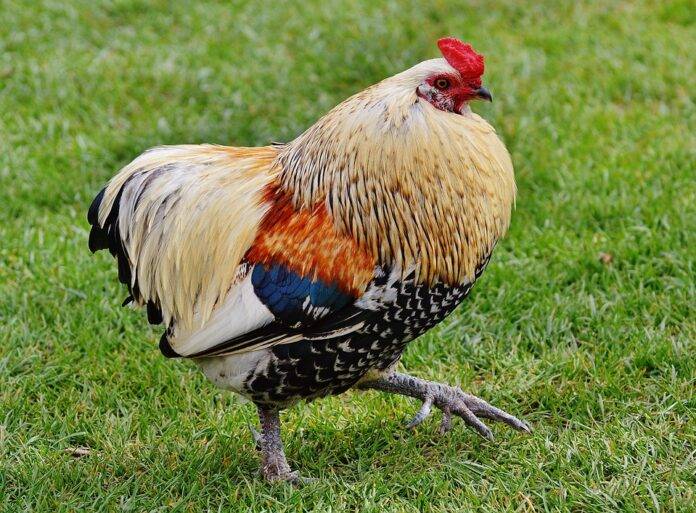Introduction
Poultry is a significant source of protein for billions of people worldwide. However, the global trade in poultry products is subject to strict regulations imposed by various countries to protect their domestic poultry industry from diseases and maintain food safety standards. In this report, we will explore the top 10 countries with the strictest poultry import regulations, highlighting the specific measures they have in place to regulate the import of poultry products.
United States
The United States is one of the largest producers and consumers of poultry products in the world. The country has stringent regulations in place to prevent the spread of diseases such as avian influenza. The USDA (United States Department of Agriculture) oversees the import of poultry products and requires stringent documentation, including health certificates and import permits, for all poultry imports. Additionally, the USDA conducts regular inspections of poultry processing facilities in exporting countries to ensure compliance with US standards.
European Union
The European Union (EU) has some of the most stringent regulations regarding the import of poultry products. The EU has banned the use of certain antibiotics and growth hormones in poultry production and requires strict adherence to food safety standards. Poultry imports into the EU must meet strict hygiene and quality standards, and all imports are subject to rigorous inspections at border control points.
China
China is the world’s largest consumer of poultry products, and the country has strict regulations in place to ensure food safety and prevent the spread of diseases. The General Administration of Customs of China (GACC) oversees the import of poultry products and requires detailed documentation, including health certificates and product specifications, for all imports. China also conducts regular inspections of poultry processing facilities in exporting countries to ensure compliance with Chinese standards.
Brazil
Brazil is one of the largest exporters of poultry products in the world, and the country has strict regulations in place to maintain its reputation as a reliable supplier. The Ministry of Agriculture, Livestock, and Food Supply (MAPA) oversees the import of poultry products and requires detailed documentation, including health certificates and product specifications, for all imports. Brazil also conducts regular inspections of poultry processing facilities in exporting countries to ensure compliance with Brazilian standards.
Japan
Japan has strict regulations in place to protect its domestic poultry industry from diseases such as avian influenza. The Ministry of Agriculture, Forestry, and Fisheries (MAFF) oversees the import of poultry products and requires detailed documentation, including health certificates and import permits, for all imports. Japan also conducts regular inspections of poultry processing facilities in exporting countries to ensure compliance with Japanese standards.
Australia
Australia has strict regulations in place to protect its domestic poultry industry from diseases and maintain food safety standards. The Department of Agriculture, Water, and the Environment oversees the import of poultry products and requires detailed documentation, including health certificates and import permits, for all imports. Australia also conducts regular inspections of poultry processing facilities in exporting countries to ensure compliance with Australian standards.
South Korea
South Korea has strict regulations in place to prevent the spread of diseases such as avian influenza. The Ministry of Agriculture, Food and Rural Affairs oversees the import of poultry products and requires detailed documentation, including health certificates and import permits, for all imports. South Korea also conducts regular inspections of poultry processing facilities in exporting countries to ensure compliance with Korean standards.
Canada
Canada has strict regulations in place to ensure food safety and prevent the spread of diseases in its domestic poultry industry. The Canadian Food Inspection Agency (CFIA) oversees the import of poultry products and requires detailed documentation, including health certificates and import permits, for all imports. Canada also conducts regular inspections of poultry processing facilities in exporting countries to ensure compliance with Canadian standards.
India
India has strict regulations in place to protect its domestic poultry industry from diseases and maintain food safety standards. The Food Safety and Standards Authority of India (FSSAI) oversees the import of poultry products and requires detailed documentation, including health certificates and import permits, for all imports. India also conducts regular inspections of poultry processing facilities in exporting countries to ensure compliance with Indian standards.
Russia
Russia has strict regulations in place to protect its domestic poultry industry from diseases and maintain food safety standards. The Federal Service for Veterinary and Phytosanitary Surveillance (Rosselkhoznadzor) oversees the import of poultry products and requires detailed documentation, including health certificates and import permits, for all imports. Russia also conducts regular inspections of poultry processing facilities in exporting countries to ensure compliance with Russian standards.
Conclusion
In conclusion, the top 10 countries with the strictest poultry import regulations have stringent measures in place to protect their domestic poultry industries and ensure food safety standards. These regulations play a vital role in maintaining the integrity of the global poultry trade and safeguarding public health. It is essential for exporters and importers of poultry products to adhere to these regulations to continue accessing these lucrative markets.




